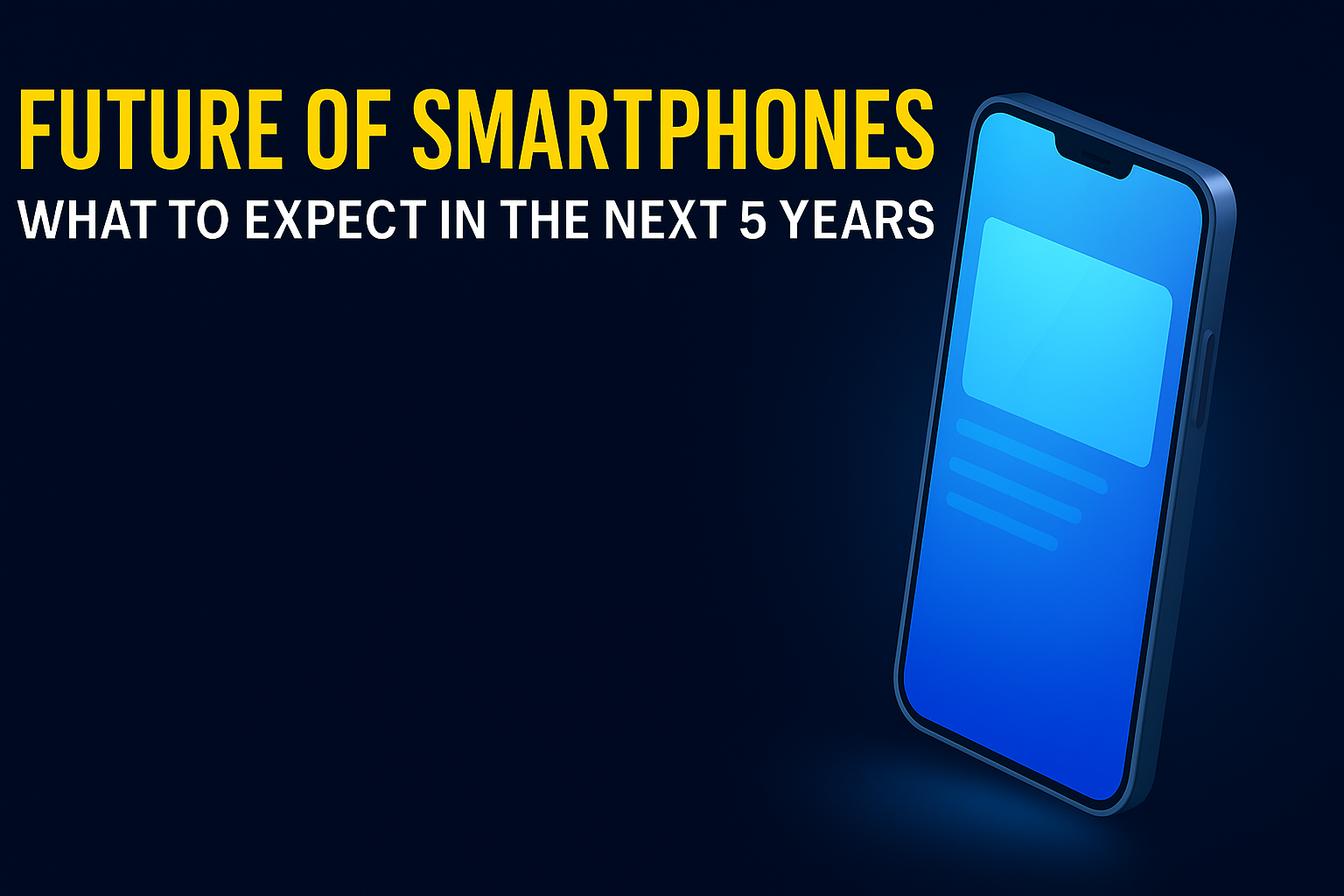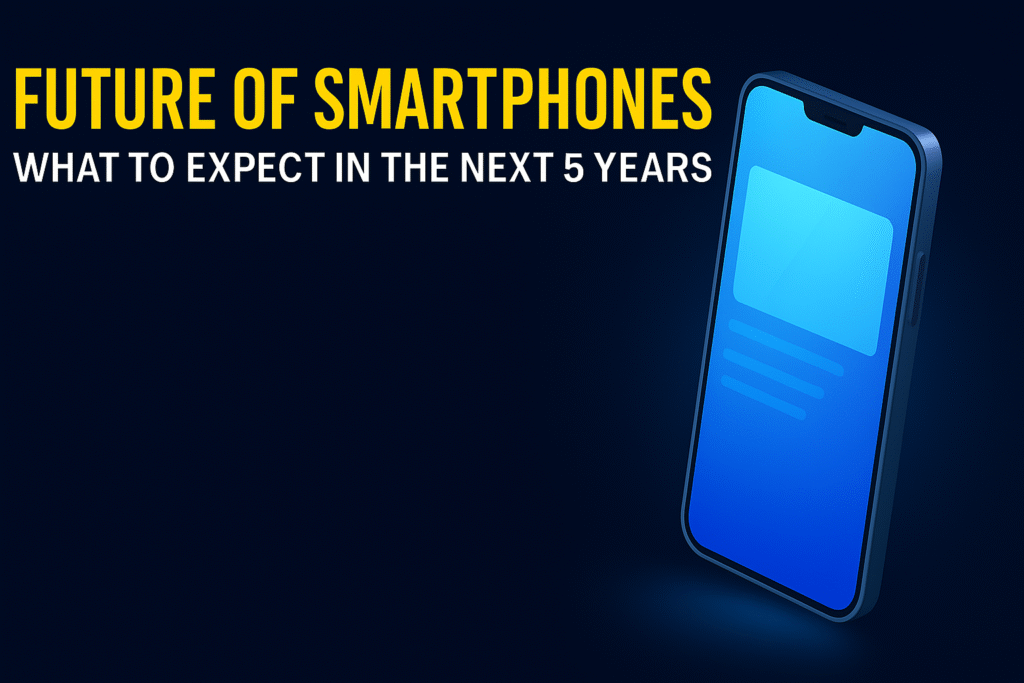
Smartphones have become an essential part of our daily lives, evolving from simple communication tools into powerful mini-computers. Over the next five years, the smartphone industry is expected to undergo dramatic changes. From cutting-edge hardware to smarter software, here are the top trends we can expect in the future of smartphones.
1. Artificial Intelligence Will Run Everything
Artificial Intelligence (AI) is already inside our devices, but in the next five years it will become the core of every smartphone function.Cameras will use AI to deliver professional-level photos with almost no effort.Virtual assistants like Siri and Google Assistant will evolve into full digital companions that predict user needs.AI-driven personalization will make every phone experience unique, from customized app recommendations to smarter battery management.
2. Foldable and Rollable Screens Will Go Mainstream
Foldable smartphones are still expensive and somewhat niche today, but by 2030 they are expected to be much more affordable and widely used.Companies are already testing rollable displays that expand like a scroll.These designs will allow users to carry a compact phone that can unfold into a tablet-sized screen when needed.Durability and price will improve, making foldables accessible to average consumers.
3. Ultra-Fast Connectivity: 6G Is Coming
5G has only recently become mainstream, but research on 6G networks is already underway.By 2030, 6G could deliver speeds up to 100 times faster than 5G.This will make technologies like holographic calls, real-time AR experiences, and ultra-smooth cloud gaming possible.With near-zero latency, smartphones will become the ultimate hub for both work and entertainment.
4. Augmented Reality (AR) and Virtual Reality (VR) Integration

The future smartphone won’t just show you the world—it will blend the digital and physical worlds.AR glasses may pair directly with your phone to project holograms, navigation arrows, or real-time translations.VR headsets powered by smartphones could become lighter, cheaper, and more immersive.Expect industries like education, gaming, and shopping to heavily rely on AR/VR experiences connected to smartphones.
5. Sustainability and Eco-Friendly Designs
Environmental concerns will shape the smartphone industry.Expect biodegradable materials, recycled metals, and modular designs where parts can be replaced instead of throwing the entire phone away.Longer-lasting batteries and energy-efficient chips will reduce waste.Brands will market sustainability as a selling point to eco-conscious consumers in the US, Canada, and Europe.
6. Health and Wellness Features
Smartphones will continue to blur the line between health gadgets and communication devices.Built-in sensors could track blood pressure, hydration, or even detect diseases early.AI-powered health apps will become more reliable, giving real-time insights about physical and mental health.Smartphones will likely sync more closely with wearable devices for complete health monitoring.
7. Security and Digital Identity
With more of our personal and financial data stored on phones, security will be a major priority.Future smartphones will use biometric security like advanced facial recognition, heartbeat scans, or even brainwave authentication.Phones may serve as a digital ID, replacing passports, driver’s licenses, and credit cards.Enhanced blockchain-based security could protect users from cyber threats.







Leave a Reply